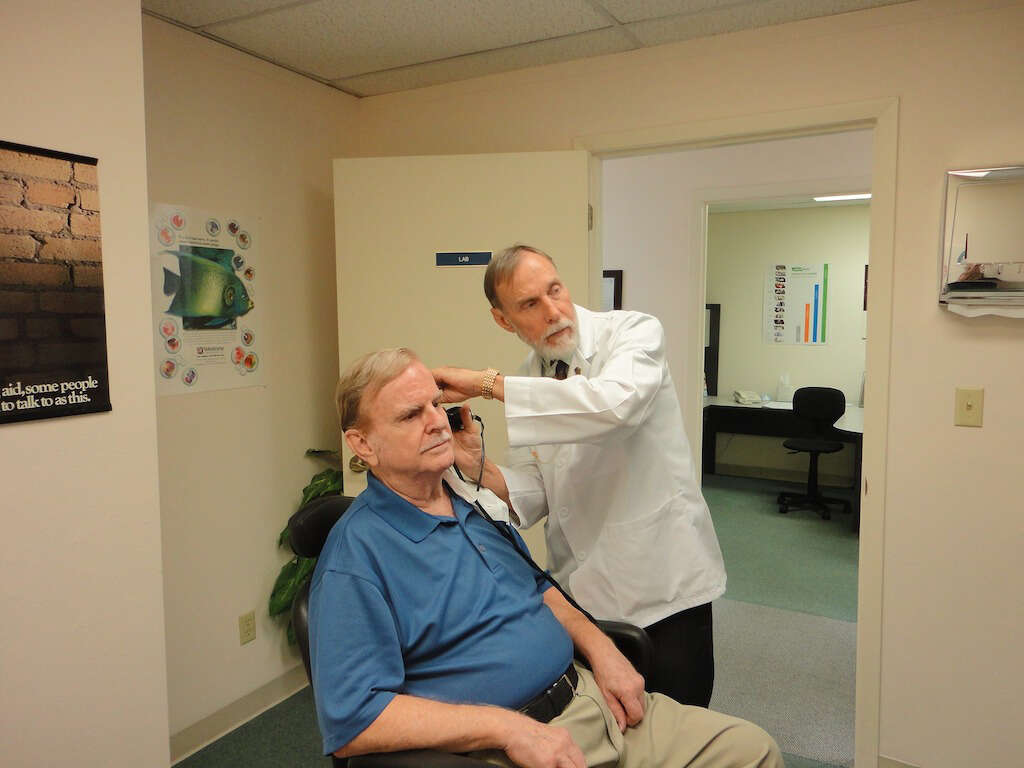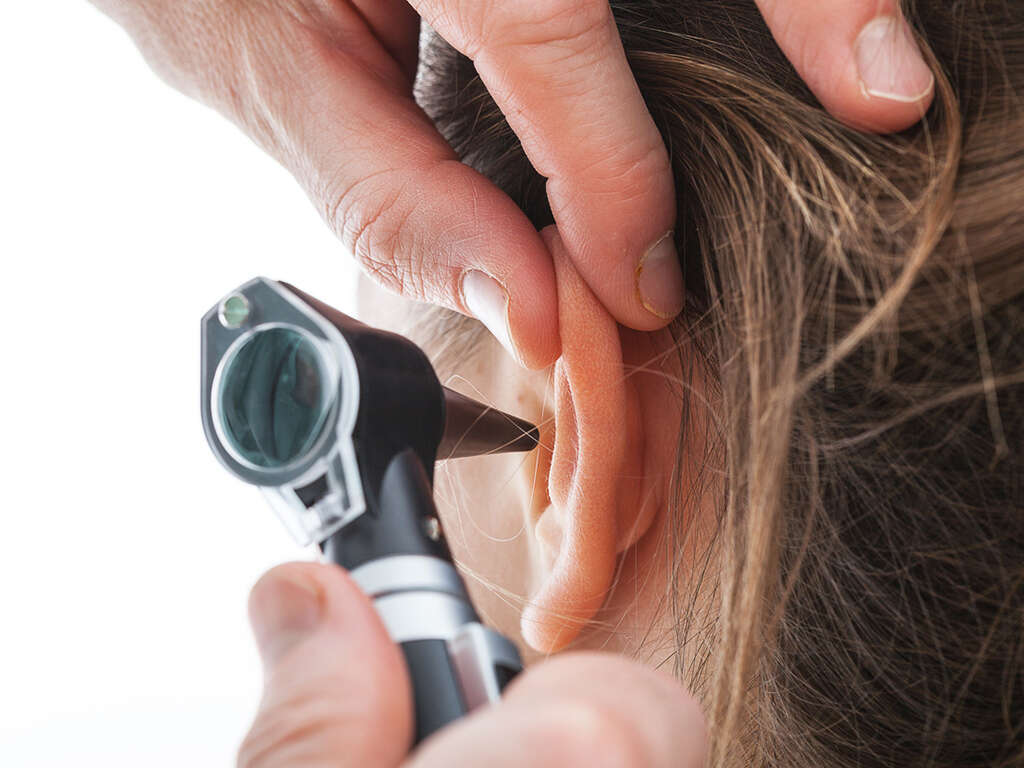What Is Exploding Head Syndrome?
 Article Sources
Article Sources
- 1. 'Exploding Head Syndrome.' Isra Khan. www.ncbi.nlm.nih.gov/books/NBK560817/
- 2. 'Exploding Head Syndrome with Co-morbid Sleep Apnea.' Akbar Ali; Afroza Aftab; Arzoo Ajaz. ncbi.nlm.nih.gov/pmc/articles/PMC5397088/
- 3. 'Associations Between Exploding Head Syndrome and Measures Of Sleep Quality and Experiences, Dissociation, and Well-being.' Dan Denis; Giulia Poerio; Sarah Derveeuw; Isabella Badini; Alice Gregory. academic.oup.com/sleep/article/42/2/zsy216/5245405
- 4. 'Exploding Head Syndrome: Six New Cases and Review Of the Literature.' Achim Frese; Oliver Summ; Stefan Evers. journals.sagepub.com/doi/abs/10.1177/0333102414536059?rfr/dat=cr/pub%3Dpubmed&url/ver=Z39.88-2003&rfr/id=ori%3Arid%3Acrossref.org&journalCode=cepa&
- 5. 'Exploding Head Syndrome Is Common in College Students.' Sharpless BA. pubmed.ncbi.nlm.nih.gov/25773787/
- 6. 'Polysomnography: Medlineplus Medical Encyclopedia.' medlineplus.gov/ency/article/003932.htm
- 7. 'Exploding Head Syndrome: Polysomnographic Recordings and Therapeutic Suggestions.' Charlotte Sachs; Eva Svanborg. academic.oup.com/sleep/article/14/3/263/2742828
Although it sounds terrifying, exploding head syndrome is not a life-threatening condition. People who are affected hear a loud noise in their head when they are on the edge of deep sleep, either before drifting off or as awakening.1‘Exploding Head Syndrome.’ Isra Khan. www.ncbi.nlm.nih.gov/books/NBK560817/
Exploding head syndrome is a form of parasomnia or sleep disorder, akin to sleepwalking or night terrors. The loud noise is often described as a bomb exploding, a gun being fired, fireworks going off or cymbals crashing together. Although the condition is painless, it can leave people disorientated, anxious and struggling to sleep which can lead to extreme tiredness during the daytime.

1. Symptoms
Exploding head syndrome causes a loud, explosion-like sound to be heard when transitioning between different sleep stages. Although they're just a hallucination, these noises can seem very realistic.
Everyone experiences the condition differently with some attacks occurring just after retiring to bed while others happen two or three hours after being asleep. Attacks can happen once or multiple times during the night and can last anywhere between a couple of seconds and a few minutes. Episodes tend to happen in groupings, occurring regularly for a month or two followed by a similar period of remission.

2. Accompanying Symptoms
The loud sounds and explosions heard during episodes of exploding head syndrome cause people to be jolted awake and into full consciousness very suddenly. With this shock to the system comes additional symptoms, such as an elevated heart rate, sweating, shortness of breath and a sense of fear or anxiety.
Some attacks are also accompanied by involuntary muscle twitches or flashes of bright light while others can lead to headaches or mild memory impairment.

3. Causes
Little is known about the exact causes of exploding head syndrome. Researchers suggest a correlation between the condition and extreme tiredness and fatigue while some believe it could be connected to other sleep disorders, such as sleep paralysis or sleep apnea.2‘Exploding Head Syndrome with Co-morbid Sleep Apnea.’ Akbar Ali; Afroza Aftab; Arzoo Ajaz. ncbi.nlm.nih.gov/pmc/articles/PMC5397088/
There are yet others in the medical community who believe exploding head could be related to the movement of components in the middle ear or minor seizures of ear nerves in the temporal lobe.

4. Who's Affected
Although no major investigation has been carried out, it's estimated that between 10 and 15 percent of people have experienced at least one episode of exploding head syndrome.3‘Associations Between Exploding Head Syndrome and Measures Of Sleep Quality and Experiences, Dissociation, and Well-being.’ Dan Denis; Giulia Poerio; Sarah Derveeuw; Isabella Badini; Alice Gregory. academic.oup.com/sleep/article/42/2/zsy216/5245405
Those prone to sleep disruptions and stress are more likely to experience symptoms while studies suggest that it mainly affects adults over the age of 50 and is more common in women than in men.4‘Exploding Head Syndrome: Six New Cases and Review Of the Literature.’ Achim Frese; Oliver Summ; Stefan Evers. journals.sagepub.com/doi/abs/10.1177/0333102414536059?rfr/dat=cr/pub%3Dpubmed&url/ver=Z39.88-2003&rfr/id=ori%3Arid%3Acrossref.org&journalCode=cepa& However, more recent research points to the condition also being fairly common among college students.5‘Exploding Head Syndrome Is Common in College Students.’ Sharpless BA. pubmed.ncbi.nlm.nih.gov/25773787/

5. When to See a Doctor
Exploding head is painless and, as it usually lasts a few seconds and there are long periods when symptoms disappear, those with mild symptoms learn to live with it. However, it can also cause panic that the loud noises are a sign of a more serious health condition.
When exploding head causes anxiety, worry or continues to disrupt sleep, it's important to seek medical help. If a doctor suspects exploding head syndrome, they may make a referral to a sleep specialist for further investigation.

6. Diagnosis
There are no specific tests that are necessary to diagnose exploding head syndrome. A doctor or sleep specialist will need to know how often and for how long the episodes occur.
They may also ask patients to keep a sleep diary for a couple of weeks, which allows them to monitor sleep patterns and the frequency of attacks. This should help find the root cause of the problem and help identify the best treatment options.

7. Sleep Study
In extreme cases of exploding head syndrome, a specialist may order a polysomnography.6‘Polysomnography: Medlineplus Medical Encyclopedia.’ medlineplus.gov/ency/article/003932.htm This is an overnight sleep study where brain waves, breathing patterns, blood oxygen levels and heart rate are monitored and recorded while the individual sleeps.
The polysomnography also allows the sleep specialist to study muscle spasms and arm and leg movements which could help identify if exploding head syndrome is related to any other sleep disorder.

8. Medical Treatments
The treatments for exploding head syndrome vary from patient to patient. A sleep specialist will take into consideration factors such as age, lifestyle and the severity of symptoms when deciding on the best course of action.
Some people may benefit from medications that influence neurological activity. Although more research needs to be conducted, studies suggest that calcium channel blockers or the antidepressant clomipramine could help reduce the frequency of exploding head episodes.7‘Exploding Head Syndrome: Polysomnographic Recordings and Therapeutic Suggestions.’ Charlotte Sachs; Eva Svanborg. academic.oup.com/sleep/article/14/3/263/2742828

9. Lifestyle Changes
As stress and sleep deprivation are common causes of exploding head syndrome, small lifestyle changes could help treat the condition naturally.
Most people require between six and eight hours of sleep every night. If you struggle to sleep through the night, try taking a warm bath or reading just before bed. Each individual needs to find what works best for them. Alcohol is also known to disrupt sleep patterns so avoiding alcohol should lead to a better night's sleep.

10. Reduce Stress Levels
If the frequency of exploding head episodes increases as stress levels increase, it's important to find ways to relieve anxiety. Yoga and meditation are popular ways to relax. A doctor may also recommend counseling or therapy to help patients in some extreme cases.
However, as the symptoms are painless and harmless and will usually go away naturally, many people find a simple change of lifestyle is the only treatment they need to prevent further episodes of exploding head syndrome.











